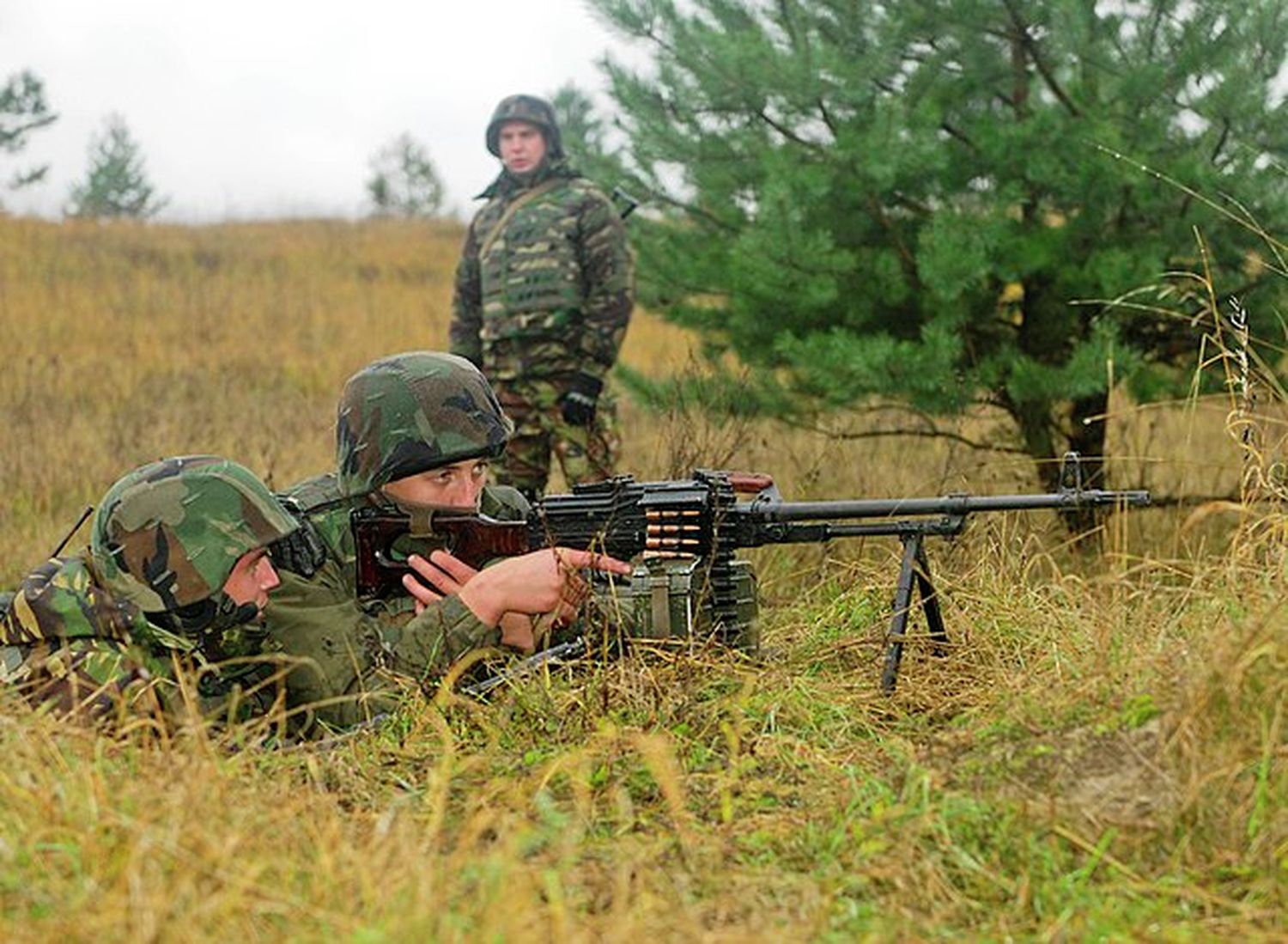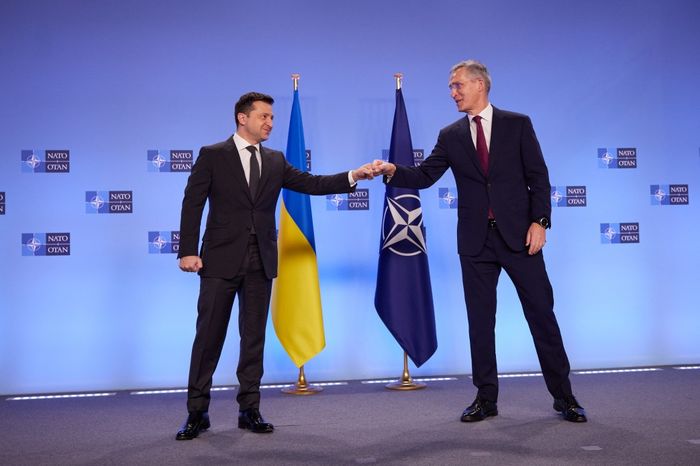Editor's note: this article was written before the Russian invasion of Ukraine on the 24th of February 2022
In the departure lounges of many Russian airports, you can find a black-and-green vending machine bearing the logo of Russia Today, the country’s Kremlin-controlled television network. These machines sell branded T-shirts which travellers can take with them for about £12, and plug state propaganda abroad. One of these in particular caught my eye last time I stood in the check-in queue – as well as the all-too-familiar RT logo, it bore an inscription: “Foreign Agent.”
When confronted with the idea that anyone might actually wear such a shirt, most Russians just laugh. The T-shirts themselves were introduced following RT’s classification in the USA as a “foreign agent.” I was surprised to see the propaganda outlet being promoted domestically as subversive, but a further look into the underlying nationalism explains what is going on here. Putin’s model of national identity works by alienating Russians from “the West”. The shirt, however absurd, serves to make light of the resulting contradictions. Understanding this identity helps to reveal a concrete ideology that explains not only T-shirt vending machines, but also the complex system of geopolitical relationships, conflicts, and falsehoods that underpins the currently-unfolding crisis.
“Russia sees Ukraine not as a neighbour, but a colony”
Historian Marlene Laruelle is one of many describing Russia’s ideology under president Putin as “illiberal.” According to this description, Russia is defined on the global stage by its opposition to Western ideals. While eschewing communism, illiberalism retains a certain geopolitical nostalgia: Russia has cultivated relations with many of its former Soviet neighbours in isolation from the West, preserving the country’s cold war-era “sphere of influence.” For Putin, such a sphere of influence is a birthright, and its diminishment can only represent an encroachment upon the Russian.
Despite their geographical proximity and shared cultural history, it is hard to imagine a nation more radically opposed to this view than Ukraine. Initially forged under Polish-Lithuanian and Russian imperial rule, Ukrainian nationhood has become, in the words of Rory Finnin, “a social and cultural movement with an anticolonial backbone and a suspicion of state institutions led by strongmen.” Nonetheless, for much of its history, Ukraine was ruled from Moscow and St. Petersburg. During this time, Ukrainians were subject to Russification, a ban on the Ukrainian language, and eventually the Holodomor, a genocide in which 3.5 million starved to death.
Ukraine’s independent history since 1991 has been tumultuous. When Ukrainians took to the streets in 2014 against a corrupt pro-Russian government, Putin responded by invading and annexing part of the country. His message, since reiterated in a 7,000 word essay notable for being more laughable than anything Ukrainian comedian-turned-president Zelensky has ever produced, was clear: Russia sees Ukraine not as a neighbour, but a colony. Since then, the Russian president has taken every opportunity to discredit Ukraine’s nationhood, positioning it instead as part of a larger Russian fraternity, separated from Moscow’s orbit by malignant Russophobic forces. In one ludicrous press conference, Putin even suggested that Ukraine itself was invented by Vladimir Lenin.
This helps explain why, then, Russian forces continue to build up along Ukraine’s eastern border at the time of writing, triggering fears of another invasion. Russia has demanded that Ukraine be barred from NATO membership, but both NATO and Ukraine have rejected this outright: for Ukraine, this would mean accepting a position within Russia’s “sphere of influence,” rather than as Europe’s largest country, with 44 million inhabitants – the majority of whom support NATO membership – and the right to make its own decisions and alliances.
In my adopted Russian hometown, however, war does not seem to be on anyone’s mind. I had initially worried that it might be difficult to fulfil the Cambridge Year Abroad Office’s request that I “avoid talking about the topic,” but in fact there has been nothing to avoid; Ukraine just has not come up very often in conversation. On one hand, it’s easy for people here to remain calm: despite Kremlin grandstanding, there is absolutely no chance that Ukraine (or anyone else) will invade Russia. On the other, the lack of a major domestic propaganda operation (the Russian army’s fairly minor “peacekeeping” mission in Kazakhstan earlier this year sent TV news channels into overdrive) has led some to suggest that the government is bluffing.
“Sooner or later, however, it will demand the return of more lost property”
But looking below the surface, I’m less confident in this conclusion. Support for war itself might be low, but belief in the nationalist myths underpinning Putin’s expansionist project is much stronger. The annexation of Crimea is almost unquestioned here. My friends believe that Ukraine and Russia are the same “historical nation” and uncritically accept Volodymyr the Great – who ruled from Kyiv – as a Russian national hero. Recently I found myself helping a rather drunk man to his feet as he mumbled semi-coherently about Ukraine being not a country but a “Soviet project.”
Whenever BBC News shows a vox pop from Russia, my parents text me excitedly to let me know the latest. Indeed, many Western outlets seem to have become very fond of the format, usually utilising it in order to pit “ordinary” Russians against the hawkish official narrative. Not long ago, Radio Liberty ran a feature in which one Muscovite dismissed the idea of war with Ukraine on the basis that “Ukrainians are our brothers.” In light of the Kremlin’s attacks on Ukraine’s very nationhood, it’s worth asking: exactly what kind of brotherhood are we talking about here?
Last year, Russia made the news as a wave of protests swept across the country in support of opposition leader Alexei Navalny. If proof was needed that Putin’s authoritarian reforms are yet to immobilise an increasingly dissatisfied population, it’s safe to say we have seen it. Navalny (who, by the way, thinks that Crimea “de facto belongs to Russia”) remains Putin’s key opponent, but his team have, for the most part, stayed quiet about the war. Protests against Russian aggression are limited to individual pickets. Nobody has a bad word to say about Ukraine, but when difficult questions are asked, its people will find few friends here.
It is often convenient – and even reassuring – for Westerners to think of Russians as a people under the heel of an authoritarian leader but that otherwise share a liberal world-view. The truth is more complex: while Kremlin warmongering is yet to take hold here, Putin’s colonial nostalgia absolutely has. It is this nostalgia that allows the president to construct fantasies of NATO “aggression” and masks Russia’s unjust attacks on Ukraine as legitimate. Stripped unceremoniously of imperial glory following the fall of the USSR, Russia remains faced by a question: what does it mean to be Russian? In three decades, the only credible answers have come from the past.
I will always love Russia. I count many people here among my best friends, and value the warmth and generosity of the Russian people immensely. Nonetheless, it would be arrogant to underestimate the influence of nationalism. Even liberal Russians I have met are reluctant to stand up for Ukraine because their identity depends on the same colonial idea as Putin’s. For now, this identity survives propped up by Kremlin rhetoric and foreign agent T-shirts; sooner or later, however, it will demand the return of more lost property.


